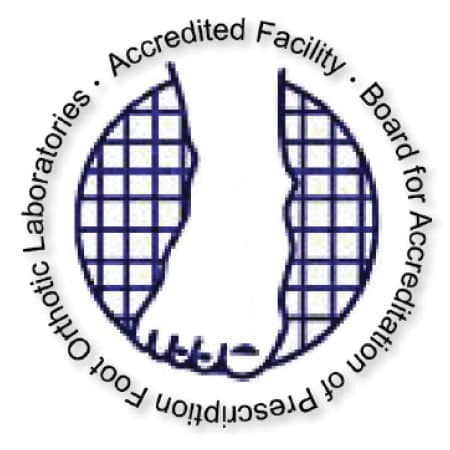FAQs
Answers to our frequently asked questions.
General Information
What’s your turnaround time?
Our turnaround time has been reliably five business days or less in-lab for the past decade.
What’s your warranty?
We have a 100% money back guarantee if you or your patient are not happy with the devices, also a lifetime quality guarantee on our devices against normal breakage (excluding TL2100). Rearfoot and forefoot posts have a 6 month guarantee against avulsion.
What if I need to return an orthotic for adjustment?
IOL will cover the cost of all adjustments up to 3 months after manufacture according to the original Rx. After three months, adjustments will be quoted by the amount of work required.
How are your devices made?
IOL’s orthotics are made by hand by highly trained technicians. We use CAD/CAM technology to precisely model the foot in order to create our positive mold.
How much do custom orthotics cost?
Rates vary depending on type, material, padding and accommodation of the device. We offer industry-competitive rates, and a full rate list is available upon request.
3D Scanning
Do you have 3D scanners?
Yes, we have developed an industry-leading proprietary casting system which includes an iPad, Sensor Structure camera, casting bracket, and all-in-one application for scanning and sending orders.
What is the cost of a 3D scanner?
Costs vary by the amount and type of equipment required, but we have options for both 48-month lease rates and purchase prices available.
Lab Standards
Do you have graphite?
Yes, IOL uses graphite for our dress devices. Graphite is the base material for our TL-2100 orthotics, our XT sprint orthotic (a poly-graphite composite), and Fibrelite Orthotic (nylon with carbon infusion).
When do we recommend graphite?
We recommend graphite for patients who require a functional orthotic, with the least amount of bulk possible. They are designed with fit in mind: low bulk equals better fit. XT Sprint offers additional flexibility and the option of exceptionally deep heel cups.
Will you adjust other labs' orthotics?
We will assess all orthotic devices from any Orthotic lab.
What if I don’t see the type of device I want on your Rx form?
Give us a call! The Rx form represents a majority of our devices, but we are able to accommodate many different requests and modifications.
When should I use no fill or max fill?
Most pathologies will have the best outcome with minimum arch fill applied to the castings, however studies have shown that equinus patients do not tolerate min fill as well so mod fill would be a better choice for this patient.
What is your standard arch fill?
Our standard arch fill is Minimum, we offer No fill as well as Mod and Max fill. As with traditional plaster casts, the more fill equals a lower arch profile (max fill).
What is your standard heel cup depth? And how deep can the Heel cup be?
Our standard heel cup depth is 15mm, however this can vary depending on the size of the foot.
Do you have a list of all of your standard accommodations?
Yes, please visit our Padding & Accommodations page on our website for a list of standard accommodations.
My patient complains of arch pain, what should I do?
If the device is not made from Graphite, the best modification would be to increase the flexibility of the medial arch, this can be done from the plantar surface, in order to maintain close contact but allow for more movement, creating relief for the patient. If the device is graphite the only adjustment that can be made is to lower the MLA.



